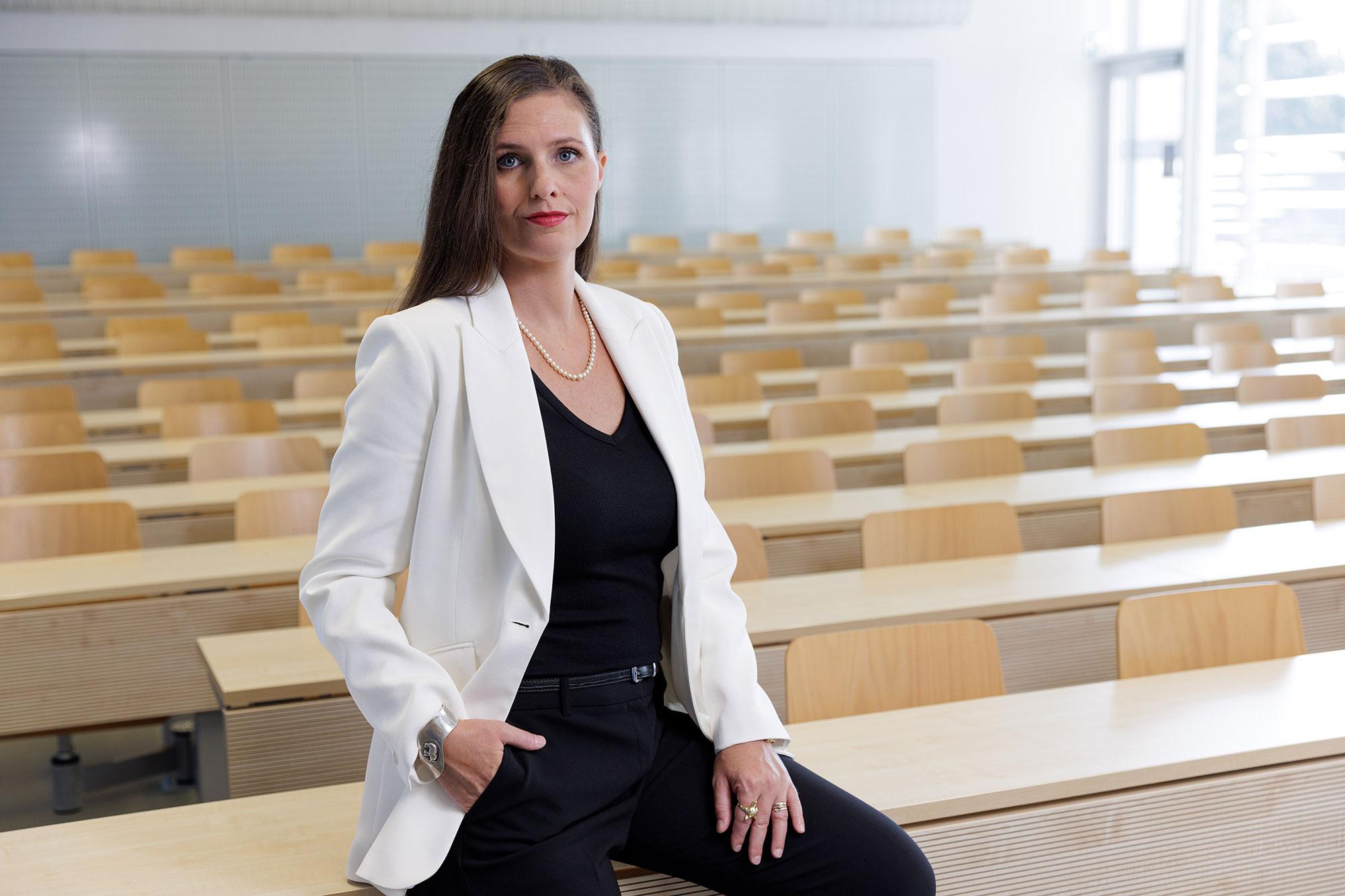Swiss Science Prize Latsis

Saskia Stucki is the Prize winner in 2025
Saskia Stucki, a researcher and senior lecturer at ZHAW and winner of the Latsis Swiss Science Prize 2025, is laying the theoretical foundations for recognising animal rights.
Independent research of high quality
Worth 100,000 Swiss francs, the Swiss Science Prize Latsis – formerly National Latsis Prize – rewards researchers with an academic age of up to ten years for outstanding achievements in basic science. Their work must be distinguished by a high degree of independence and scientific quality.
The SNSF awards the prize annually on behalf of the Latsis Foundation of Geneva. The winner is chosen by the National Research Council.
Prize winners since 1984
Year
Prize winner
Domain of research
2013
David Sander
Affective science
2012
Jacques Fellay
Genomics: defence mechanisms against viruses
2011
Karl Gademann
Chemistry and biology: isolation and synthesis of natural materials
2010
Marianne Sommer
History of science: exploring the life sciences
2009
Mirjam Christ Crain
Medicine: biological stress caused by infectious diseases
2008
Franz Pfeiffer
X-ray technology
2007
Giuliano Bonoli
Political science: role of the welfare state in Europe
2006
Michael Hengartner
Molecular biology: study of a model organism, a worm called Caenorhabditis elegans
2005
Patrick Jenny
Engineering sciences: computer simulations of complex fluid systems in nature and technology
2004
Simon Gächter
Empirical economics: cooperative behaviour
2003
Silvia Arber
Neurobiology: neuronal circuit formation in the developing spinal cord
2002
Jérôme Faist
Solid state physics: quantum cascade laser (QCL)
2001
Lorenza Mondada
Interactional linguistics
2000
Laurent Keller
Evolutionary ecology: ant behaviour
1999
Frédéric Merkt
Chemical physics of molecules: spectroscopie and dynamics of atoms and molecules in electronically charged states
1998
Peter Schaber
Ethics, applied ethics and environmental ethics
1997
Konrad Basler
Zoology/developmental biology (drosophila fly)
1996
Martin Vetterli
Audiovisual technology of the future: wavelet theory in communication
1995
Astrid Epiney
Human rights and international environmenal law
1994
Denis Duboule
Developmental biology and genetics
1993
Thomas Stocker
Climate and environmental physics: the role of the oceans in climate change
1992
Maria Christina Pitassi
History of theology and philosophy in the 17th and 18th century
1991
Susan Margaret Gasser-Wilson
Cell biology: the role of nucleus proteins in organising and passing on genetic information
1990
Goeffrey Bodenhausen
Nuclear magnetic resonance spectroscopy (NMR)
1989
Anne-Nelly Perret-Clermont
Social psychology and educational sciences
1988
Paul Schmid-Hempel
Behavioural ecology
1987
John Paul Maier
Physical chemistry: spectroscopic methods for analysing the properties of ionised molecules
1986
Ulrich Kohli
Economics: analysis of international trade
1985
Otto Albrecht Haller
Virology: resistence to flu viruses
1984
Jürg Fröhlich
Mathematical physics; quantum theory
Swiss Science Prize Latsis award ceremony
- National Latsis Prize 2019 awarded on 17 January 2020
- National Latsis Prize 2017 awarded on 11 January 2019
- National Latsis Prize 2017 awarded on 11 January 2018
- National Latsis Prize 2016 awarded on 12 January 2017
- National Latsis Prize 2015 awarded on 22 January 2016
- National Latsis Prize 2014 awarded on 14 January 2015